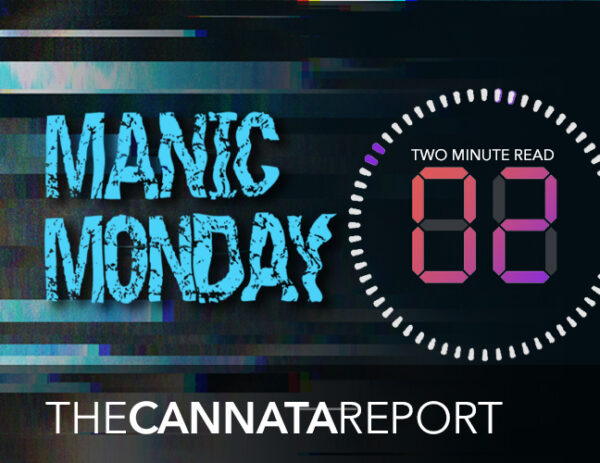The pandemic severely curtailed acquisitions in 2020, but 2021 is about to see a resurgence of activity.
Over the last 30 years, the independent dealer channel has been getting smaller and smaller. Initially, this shift came from mega dealers such as IKON (formerly Alco Standard), Danka, and Global, then OEMs who acquired to lock in distribution. Next, our channel saw the emergence of private equity firms, which have been acquiring, acquiring, and acquiring. At the same time, a cadre of mid-sized and larger dealers have been snapping up their share of dealers, growing their dealerships, adding MIF, and establishing a footprint in new markets.
But 2020 was another story. By our count, there were just 31 publicized acquisitions, compared with more than 80 in 2019. It’s not unusual for a company to keep acquisitions private. Most acquisitions that closed in 2020 were in the works prior to the pandemic.
“We hit the third week of March, and basically everybody hit the pause button on merger-and-acquisition activity, and it stayed that way through early June,” observed Jim Kahrs, president of the consulting firm Prosperity Plus Partners.
Prosperity Plus Partners offers consulting services to the dealer channel, including merger and acquisition expertise. It had five transactions scheduled to close between March and April. Since then, all five have closed, including a private-equity deal.
UBEO Business Services, a private equity-backed dealer organization, was working on some 20 deals entering 2020 and on the verge of closing on three when the shutdowns began.
“It stalled everything,” said UBEO CEO Jim Sheffield. “I don’t think anybody expected this to last as long as it has.”
“We took a pause to understand what was going to happen with our customer base, what was going to happen with the business, and what was going to happen to cash,” added Doug Albregts, president of Marco.
In early summer, when many companies resumed discussions with Marco, most had financial anomalies associated with COVID-19 and posed challenges during due diligence because of the uncertainties of how the business will look post-COVID.
“No one likes to make assumptions when you’re doing acquisitions,” said Albregts.
Obviously, the pandemic has wreaked havoc across all sectors of the economy, with many dealers who depend on copier clicks particularly hard hit.
“Most all of the companies that we were looking at just don’t look the same,” stated Sheffield.
Flex Technology Group (FTG) is one of the industry’s most active acquirers, but its last acquisition closed in January 2020. FTG had an internal target going into 2020 of $100 million in acquisitions, up from $75 million in 2019. It had a pipeline in place, letters of intent had been sent, and then the pandemic struck.
“We focused all our efforts on our core business, our people and our clients. I’m pleased to say we performed very well during this crazy time,” said Frank Gaspari, chief executive officer of FTG. However, Gaspari and Oval Partners, the private-equity firm that owns FTG, plan to resurrect their aggressive acquisition initiatives in 2021. The message Gaspari has received from Oval Partners is to double down and get the ones they want.
“The targets are still there, and we are talking to them,” said Gaspari. “What’s changed is we can be more selective. Just like in our business, we want to see some sort of normalcy in their aftermarket.”
Get Serious, Not Desperate
While one might assume that dealers may be desperate to sell during this time, it’s actually the opposite. One reason for this is that most dealerships aren’t worth as much as they were a year ago.
“There are a bunch of folks that would love to sell tomorrow but aren’t willing to take a COVID discount, even though they’ve got a COVID motivator,” said Prosperity Plus Partners’ Kahrs.
Kahrs cautions against dealers selling out of desperation.
“COVID or not, the worst thing you can do is make a decision today that you want to sell your business and put it on the market without any analysis or advance prep,” said Kahrs. “It’s doable, but you don’t get the best outcome. You usually sacrifice some dollars, and potentially sacrifice more qualitative things like terms and conditions.”
Waiting to sell in this environment seems to be the most prudent approach.
“If I were to cast a broad stroke, anyone who hangs in to see what the recovery is going to look like is probably better off,” said Kahrs. “I hate saying that because it goes against my own business.”
“We certainly haven’t seen anybody desperate, which is a good sign for the channel,” said Marco’s Albregts, who reported that some of the dealers Marco has been talking to about acquiring are tabling the discussion for another six months as they look to rebuild their businesses. Indeed, many owners are hesitant to sell their dealerships when business is down, even though dealer organizations like UBEO are working on a handful of deals. But there is still much uncertainty.
“Until people get back in the office, nobody’s getting any overages on their contracts, so revenues are affected, that’s all there is to it,” said UBEO’s Sheffield. “If you haven’t made some hard adjustments, your profits are affected as well.”
Thinking Outside the Box
Prosperity Plus Partners’ Kahrs believes these companies will get creative even though they are still working off an EBITA model and looking at an organization’s last 12 months of financials. One alternative is for acquirers to reduce the value of the deal or take a big chunk of the value and turn it into an earn-out where the risk is with the seller.
The last deal that Prosperity Plus Partners closed was originally put on hold in March. When it reengaged with the private equity firm, Prosperity Plus Partners told the firm that the client wouldn’t be interested in selling if the offer was lower than before the pandemic. Instead, the client was willing to wait a couple of years until business bounced back and then sell. The private equity firm agreed to move forward with the deal but structured it in a way that the dealer received a certain percentage of the sale price upon signing and the remainder after their revenue recovered.
UBEO’s Sheffield agreed that buyers and sellers will have to be creative when negotiating the terms of future deals in this environment, even though UBEO must still consider revenues, EBITA, and the market when placing a value on a dealership. When pressed about what kind of creativity that might entail, he passed, not wanting to give anything away to competitors.
Gaspari acknowledged that FTG is adapting to current conditions and is looking much closer to see how a dealer’s customers performed during the last nine months.
“We’re looking at things that we didn’t in the past,” he said. “There are some companies that invoice for actual prints versus a base amount, billed for overages. I’d be less interested in those companies. And there are companies that are heavily invested in verticals that will forever be impacted. They are no longer a target.”
He references copier companies that have built their business on the education market. He feels that they are okay right now because they have minimums with their customers and are still getting paid. But he sees that ending. What appeals to FTG are companies that have a strong portfolio of enterprise accounts and down-the-street business.
While Marco is still looking at areas it always focused on, it’s with closer scrutiny, For example, Marco is examining existing contracts of its customer base of potential acquisitions to determine if the contracts include the proper minimums and overages or other escalators, as well as the duration of those contracts.
“The renewal rate on contracts says a lot about how the business is going to fare moving forward,” said Albregts.
Accelerating Acquisitions
As acquisitions accelerate, private equity firms will set the pace in 2021 quite simply due to the private equity model.
“The private equity model can’t stay on hold,” said Kahrs. “You can’t go two years and not make any investments because then the investors are getting no return.”
But don’t think for a second that it’s only the private-equity firms that will be buying in 2021. Four of the deals that Prosperity Plus Partners closed during the latter half of 2020 were acquisitions by independent dealers. Kahrs believes privately-owned dealers have the edge over some of the private equity companies as long as they are willing to be flexible in structuring deals.
“This flexibility has given independent dealers—for a short time—the upper hand in some of these transactions where, if they were competing against a private equity company, would be outbid on the dollar side in a lot of cases,” said Kahrs.
Despite the current economic climate, FTG’s Gaspari believes there are plenty of good companies worth acquiring. Some did better than others during the pandemic because they had contracts with monthly minimums. Most private equity-backed companies are selective. As Gaspari said, “We’re not interested in fire sales or fixer-uppers.”
“We’re picky on who we want to join our team,” added UBEO’s Sheffield. “We’re trying to create the premier customer experience company in our industry, so we’re looking at really, really good companies and we’ve actually passed on a few. The beauty of most of the organizations that we are talking to and most everybody in our industry is no one has a high level of market share. You can still build a business back even if all your customers have shrunk to some degree.”
FTG’s Gaspari remains bullish and believes that more quality companies will be available once things get back to normal.
“Like anything else, out of something tragic, there is always something to be learned and some positives,” he said. “Some of the good things are we’ll get better companies that are more aligned with us. 2021 is going to be a big year for us. There’s a handful of [companies] out there north of $50 million, and I wouldn’t be surprised if we get a couple of them very soon.”
Marco will be equally aggressive.
“We are sitting on more cash than ever,” said Albregts. “We’ve weathered the COVID challenge as good as anybody and better than we anticipated. We’re moving quickly. Some of the parameters have changed and the deal structures may have changed, it just depends on the people we’re looking to acquire. Businesses that performed well, businesses that are more resilient, people that drove efficiencies across their business and had similar performance to us, that valuation will be treated much differently.”
And with acquisitions set to accelerate, so will consolidation of the independent dealer channel.
“The larger dealers are going to continue to get bigger and some mid-sized dealers will continue to get bigger. And whether that’s good or bad for the industry, the number of smaller dealers will continue to decline,” concluded Albregts.
Access Related Content
Visit the www.thecannatareport.com. To become a subscriber, visit www.thecannatareport.com/register or contact cjcannata@cannatareport.com directly. Bulk subscription rates are also available.
You're viewing 2021 Acquisitions Outlook, in a text-only format to view this issue in all its entirety please download it from our Past Issues page



